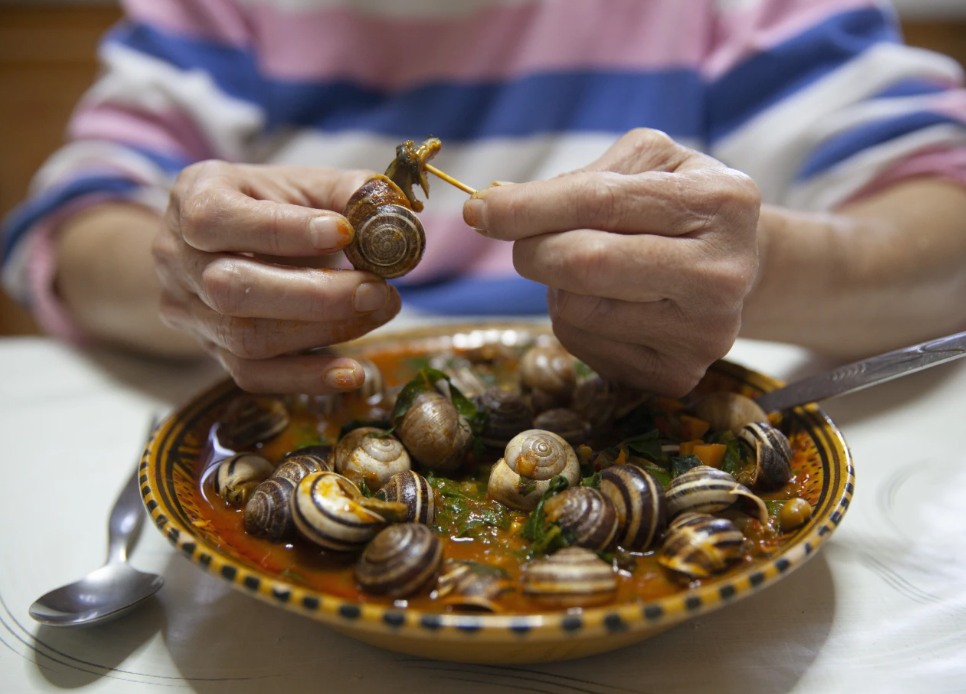In central Tunisia, an increasing number of unemployed young men are finding a new source of income by gathering snails from rocks and leaves, collecting them in large plastic bags to sell at local markets. With the rising cost of basic goods making essentials unaffordable for many families, snails have become an attractive alternative.
“They’re profitable, beneficial, and in high demand,” says Karim, a 29-year-old snail vendor from the village of Akouda.
Snails have been part of Tunisia’s culinary history for over 7,000 years. Today, while often considered a delicacy in bistros, snails are regaining popularity as a cost-effective substitute for red meat—a protein-rich food that pairs wonderfully with salt, spices, and bold seasonings.
In a country where youth unemployment exceeds 40% and inflation remains stubbornly high, snails have become both a nutritional staple and an economic lifeline. This situation has fueled social unrest and increasing migration to Europe. Snails are not only low in fat but also rich in iron, calcium, and magnesium. They cost around half as much as beef per kilogram, and in many cases, even less when sold by the bowl.
“Snails are better for cooking than lamb. While lamb costs 60 dinars ($19.30) per kilogram, a bowl of snails sells for just five dinars ($1.60),” says Mohammed, a vendor at the Akouda market.
As the prices of meat and poultry continue to rise, more Tunisians are turning to affordable protein alternatives. In addition to their economic benefits, snails are also environmentally friendly. They produce significantly fewer carbon emissions compared to traditional livestock farming, which often leads to deforestation.
Wahiba Dridi, who runs a restaurant in Tunis, prepares snails in the traditional way with peppers and spices. She notes that snails were especially popular during this year’s Ramadan, which recently concluded. Although red meat is traditionally served during the evening meals that break the daily fast, snails—costing less than 28 Tunisian dinars ($9) per kilogram compared to 55 dinars ($18) for beef—are increasingly seen as a budget-friendly alternative.
“If people truly understood the value of snails, they’d eat them all year round,” Dridi adds.













